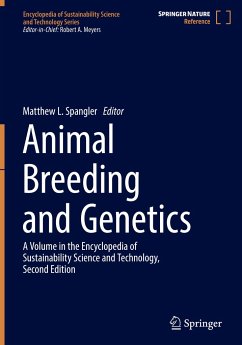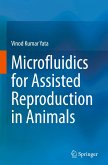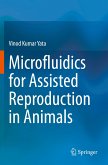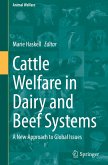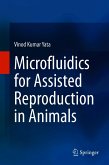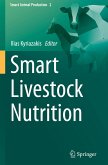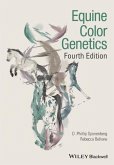This newly updated and revised volume of the Encyclopedia of Sustainability Science and Technology (ESST) details the role of Animal Breeding and Genetics in the sustainability of animal agriculture. The volume covers scientific principles and applications includes the current science used to advance cattle, poultry, swine,sheep, and equine populations, as well as the future role of techniques such as gene editing.
International leaders in the field explain foundational concepts such as heritability, the covariance between relatives, statistical approaches to predicting the genetic merit of individuals, and the development and advancement of molecular techniques to elucidate changes in the DNA sequence that underly phenotypic variation. The use of genetic-based tools to improve animal agriculture and meet consumer demands across species is treated in detail.
Readers will gain an understanding of how global livestock producers have implemented advanced genetic selection tools and used them to improve reproduction, production, efficiency, health, and sustainability. The interactions of genetics and production environments, and the genetic components of the complex interactions among animals are also discussed. The future of Animal Breeding and Genetics, including the challenges and opportunities that exist in feeding a growing world population, are addressed.
Hinweis: Dieser Artikel kann nur an eine deutsche Lieferadresse ausgeliefert werden.
International leaders in the field explain foundational concepts such as heritability, the covariance between relatives, statistical approaches to predicting the genetic merit of individuals, and the development and advancement of molecular techniques to elucidate changes in the DNA sequence that underly phenotypic variation. The use of genetic-based tools to improve animal agriculture and meet consumer demands across species is treated in detail.
Readers will gain an understanding of how global livestock producers have implemented advanced genetic selection tools and used them to improve reproduction, production, efficiency, health, and sustainability. The interactions of genetics and production environments, and the genetic components of the complex interactions among animals are also discussed. The future of Animal Breeding and Genetics, including the challenges and opportunities that exist in feeding a growing world population, are addressed.
Hinweis: Dieser Artikel kann nur an eine deutsche Lieferadresse ausgeliefert werden.

